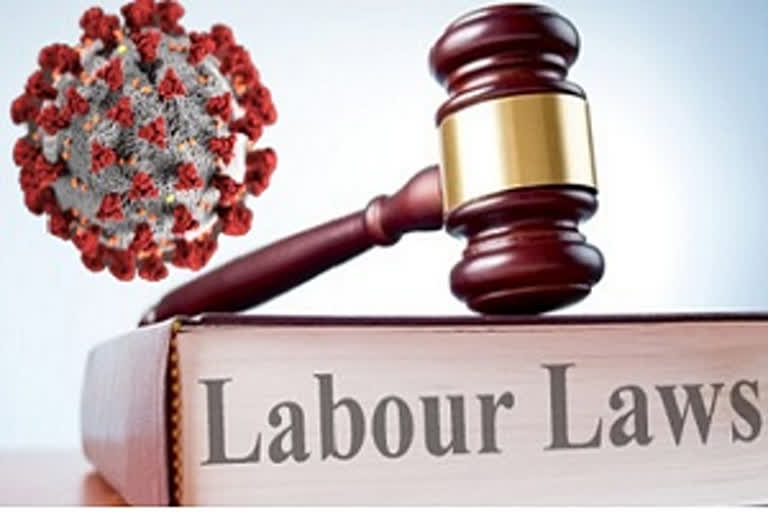Bengaluru: As India moves deeper into a public health and economic crisis due to COVID-19, state governments are introducing measures that strip away the legal rights of workers.
States like Uttar Pradesh, Madhya Pradesh and Gujarat have announced the suspension of a gamut of labour laws. These “reforms” seek to attract investment by exempting factories, establishments and businesses from key regulations that provide workers many protections regarding minimum wages, layoffs, occupational safety and working conditions.
States like Rajasthan, Punjab, Haryana, Himachal Pradesh and Uttarakhand have also announced some less extensive dilution of labour regulations in the form of extended working hours. More states might follow suit.
The most radical changes to labour laws were introduced by Uttar Pradesh. The Yogi Adityanath-led Bharatiya Janata Party (BJP) government passed the Uttar Pradesh Temporary Exemption from Certain Labour Laws Ordinance, 2020 which wholly suspends almost all the labour laws that govern the state for three years.
Read:Major labour laws suspended in UP for 3 years
The only labour laws that have been retained are the Building and Other Construction Workers Act, 1996, the Workmen Compensation Act, 1923, Bonded Labour System (Abolition) Act, 1976, and Section 5 of the Payment of Wages Act, 1936.
However, most crucial labour laws including the Minimum Wages Act, 1948, Industrial Disputes Act, 1947, Factories Act, 1948 and about 30 other laws regulating working conditions seem to have been summarily suspended.
Following the announcement by Uttar Pradesh, states like Madhya Pradesh and Gujarat have also kept key provisions of labour laws in abeyance.
These measures allow businesses to hire and fire workers at will, exempts new establishments from following existing safety and health norms and allows firms to impose longer working hours.
While states like Rajasthan, Punjab, Haryana, Himachal Pradesh and Uttarakhand have also provided the flexibility of working hours by extending it from 8 to 12 hours per day, the employers in these states are required to provide higher wages to the workers for overtime.
The dilution of labour laws, especially their wholesale suspension in states like Uttar Pradesh and Madhya Pradesh, has drawn the ire of trade unions, social activists and opposition political parties.
Read:Labour law amendment not without Centre's approval: Congress
The Centre of Indian Trade Unions (CITU) called it a “barbarous move to impose conditions of slavery on the working people who are actually creating wealth for the country.”
Congress leader Rahul Gandhi stated that the coronavirus crisis “can't be an excuse for crushing human rights, giving permission for unsafe workplaces, exploitation of labourers and suppressing their voice.”
Even the Bharatiya Mazdoor Sangh, affiliated to the Rashtriya Swayamsevak Sangh (RSS) and BJP, has criticised these decisions.
The suspension of labour laws by these states raises serious constitutional and legal questions. Labour falls under the List III- Concurrent List under Seventh Schedule of the Constitution.
Hence, both the union and the states can make laws on the subject. There are presently about 44 central legislations and over 100 state legislation on various aspects of labour. State legislatures may also pass amendments to central labour laws.
